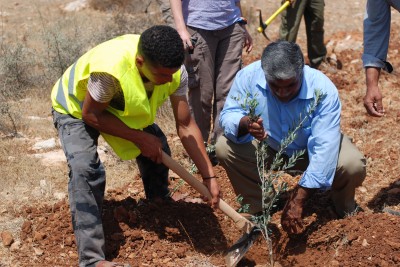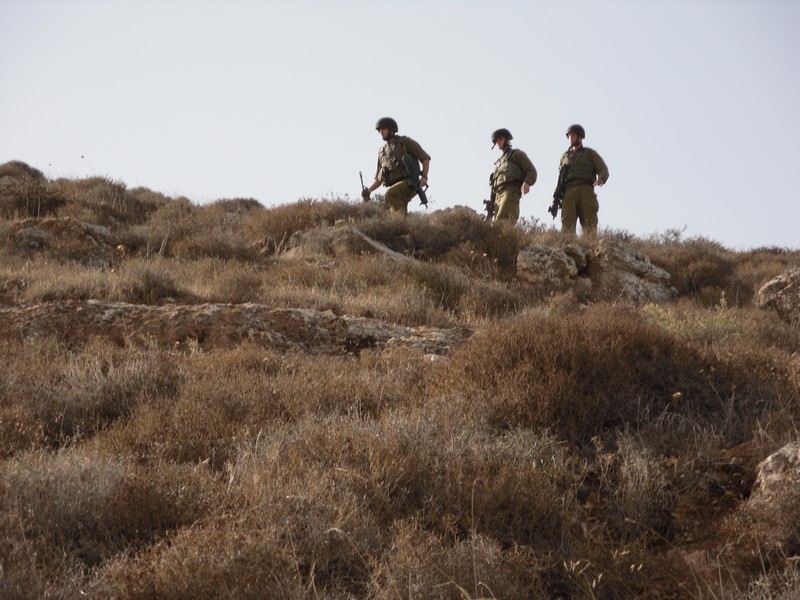Tag: Itamar Settlement
-
Israeli flags hanged in Yanoun are a reminder of Itamar settler violence
by Ramon Garcia 7 March 2012 | International Solidarity Movement, West Bank The illegal settlement of Itamar, constructed illegally on the land of Aqraba, Awarta, and Beit Furik, has taken a provocative step of incitement in the village of Yanoun, from which Zionists have also stolen land. On 7 March 2o12 illegal settlers entered the…
-
Turtles in Aqraba
by Jonas Weber 10 February 2012 | International Solidarity Movement, West Bank “Hurry up you turtles!” Wael yelled in the distance. He had suddenly turned this walk into some kind of contest. We skipped across the rocky landscape of Palestine, dirty and with the sun in our eyes. We were planting trees in the small…
-
Israeli military and Zionists ambush olive harvest in Beit Furik
21 October 2011 | International Solidarity Movement, West Bank The Palestinian family El Jobor was unsuccessful in their attempt to harvest olives today as they met resistance from Jewish settlers and Israeli soldiers originating out of the Itamar settlement. Accompanied by ISM volunteers the family climbed the hillside above Beit Furik and marched through the olive…


